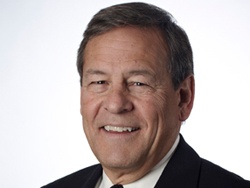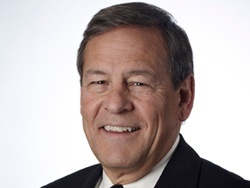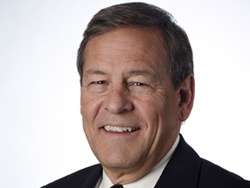


When penciling in another meeting on your calendar, is it usually accompanied with a groan and a feeling of dread? Is it because you hate meetings? Or do you hate the fact that so many meetings seem purposeless and poorly run?
Rich Meiss, senior training consultant at The Bob Pike Group, offers a few tips to help improve the meetings that you facilitate.
"First, only invite those who really need to be at the meeting. Set the stage for this by discussing the types of meetings needed and who should be at each," Meiss began. "Then let people know that all those carbon copied on a meeting notice have the option of attending or not, but are expected to read the minutes and be 'up-to-speed' on information shared.
"Second, always start the meeting with a positive tone and set the purpose and agenda for the meeting early on. Double check that participants all agree with this purpose and are willing to keep the meeting within the bounds of this agenda.
"Finally, avoid 'meeting creep.' This is the tendency for the meeting to start going off on tangents. Use a 'delay board' in the meeting where side topics are written and posted for attention in later meetings to keep things on track."
Meiss facilitates the Making Meetings Work workshop for The Bob Pike Group. "Making Meetings Work was originally done as a part of our conference agenda, and then we started having clients ask for in-house versions," Meiss explained. "The agenda grew to two days based on the needs clients wanted covered."
The workshop has historically been an in-house only workshop, but is now being opened up as a public workshop.
Another public workshop added this year is Creating High Performing Teams.
This teams workshop is based on the 5 Rs model.
Reasons -- the purpose of a team, which includes creating its mission, vision and shared values
Relationships -- the way team members inter-relate, which includes information from the DiSC profile
Responsibilities -- how team members hold each other accountable and encourage ideological conflict, debating ideas to get the best results
Roles and Goals -- what outcomes are expected and how the work is divided
Results -- committing to the standards and actions that will lead to great results
Meiss suggests that these 5 Râ??s correlate nicely with Patrick Lencioniâ??s best-selling book, The Five Dysfunctions of a Team. The dysfunctions include lack of commitment, lack of trust, fear of conflict, avoidance of accountability and lack of results.
In the module on relationships, the DiSC profile is taken by each participant. "DiSC is taken either in paper form or online," Meiss explained. Completion time is usually less than 15 minutes, so participants are quickly gaining information about their behavioral style (sometimes called 'personality') and then applying it to team situations. They gain an insight into their highest and lowest DiSC categories (D= Dominance, i= Influencing, S=Steadiness, and C=Conscientiousness), and how this manifests itself in their behavior at work.
"This information is then used throughout the workshop," Meiss said. "One team we worked with consisted of 15 top managers of an organization, and the team was in constant turmoil. Through the DiSC assessment, we discovered that 13 of these 15 managers had a high tendency toward Dominance (the D factor in DiSC), which meant that all of them wanted to be in control. Throughout the workshop day, they began to realize how dysfunctional their behavior was to the team and the organization, and they began to adjust their behaviors. Three primary solutions were suggested to help them:
1. Be AWARE of each of the 13 managers' tendencies to want control or be 'in charge'
2. Be willing to CREATE a clear line of authority, so there was no question as to who was in charge of which areas, decisions, courses of action, etc.
3. Be willing to ADAPT their behavior depending on the behavioral style most appropriate in the different situations
"It would be good for multiple team members to take this workshop together. (," Meiss suggested.) "The content is broad and deep, and allows participants to flex what is covered to the most specific needs of their organization or team," Meiss concluded.
For more information on these workshops call us at 800-383-9210.
Don't miss out on updates and chances
to sharpen your skills with participant-centered learning.




3740 N Chestnut St #113 - Chaska, MN 55318-3053